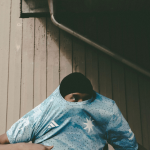
Ukraine's team sponsor is now a Gazprom-owned team sponsor
The shirt was announced as a collabo with Wildberries but in reality there is the Joma logo
March 21st, 2023
UPDATE 21.03.23: After the controversy surrounding the deal Joma has finally taken a position on the matter. The Spanish brand, as reported by insidethegame.biz, has denied any possible ties with the Russian and Belarusian teams, confirming that it has closed any relationship and ties with those clubs. The problem is, however, as we wrote a few weeks ago in our article, Wildberries being a retailer has access to the brand's entire sports catalogue, so it is free to purchase any supply.
So the brand denied all rumours: 'We confirm that Joma's headquarters in Spain has discontinued all sponsorship activities with the sports teams of Russia and Belarus. We have no direct contact - commercial or sponsorship - with any professional club [in Russia and Belarus] and we had no knowledge and have nothing to do with the launch and customisation of Zenit's new kit'.
For the time being, the problem seems to have been resolved, also because the Ukrainian football federation had rightly demanded explanations from the brand. Joma was not aware of the matter and the federation does not seem intent on abandoning the company, looking for other possible sponsors.
Football is not only a sport, but also a social phenomenon of enormous importance, as the last World Cup in Qatar demonstrated, where football and politics intersected, with the former being used in some way to clean up and revitalise the image of an entire nation through the practice commonly known as sportswashing. And after the controversy surrounding the Qatari edition, another is ready to be added. A year on from the Russian military aggression in Ukraine, the repercussions on the sporting world do not appear to be diminishing, indeed, they are becoming more complicated and overlapping.
After the outbreak of the war instigated by Putin, the issue spilled over into football, where the major institutions, in line with the repressions, excluded the Russian national team from any kind of competition. adidas, sponsor of the Russian national team, preferred to break off the relationship and so did many technical sponsors of Russian clubs. Unilateral interruptions also involved the world of fashion with the big fashion houses taking various measures to interrupt or block the relationship with the Russian market. But despite this, football in Russia has not stopped and the teams, abandoned by their technical sponsors, have had to run for cover, looking for new solutions on the ground given the impossibility of access to anything else. And the news of these hours is undoubtedly the start of the sponsorship relationship between Zenit St. Petersburg and Joma.
#ВСвоейСтихии pic.twitter.com/z3bvgyAgHe
— ФК «Зенит» (@zenit_spb) March 3, 2023
Zenit St. Petersburg had been orphaned by Nike, who last year decided to backtrack on the agreement that had been in place since 2010 and leave the Russian club, and looking for a new partner found the Spanish Joma, although officially the club presented the jersey with Wildberries, the largest retailer in Russia.
The shirt, which was presented yesterday with an overall also well-done campaign, stands out for its sophisticated design but above all for the meaning behind it: 'St. Petersburg is the city of maritime glory and our history has always been linked to the sea and, of course, to the element of water. The city's famous rivers, canals and unique embankments are recognisable all over the world and we wanted to pay homage to our homeland on the occasion of its 320th birthday."
A strong concept, for which there seems to have been some reasoning behind it, a design study, and therefore a group of people legitimately got together to brainstorm and reason about the best possibilities of rendering it. The question then that arises is how and if Joma ever really saw or approved of this. Here is the description that left me most surprised: "When you wear this kit, our kit, you feel united with the city. When you wear this jersey, you feel in your element!".
#BeInYourElement
— FC Zenit in English(@fczenit_en) March 3, 2023
Zenit and Wildberries present our new kits and here's what we'll wear on the road!
https://t.co/41ipFDshID… pic.twitter.com/NP78F9EmWd
Zenit is not a team like any other, being owned by Gazprom, the Russian multinational controlled by the Government of the Russian Federation and a leader in the energy-mining sector. A company that has often used big European football as a vehicle to position itself in the fan's imagination, becoming a Uefa and Champions League sponsor. After the Russian invasion many Gazprom customers ran for cover, tearing up those compromising contracts and trying to clean up their image.
Joma, on the other hand, was apparently not intimidated by the possible backlash and is continuing to supply kits for various Russian clubs, such as CSKA Moscow. It is still unclear how these sponsorships came about, whether directly from the Spanish brand or through the local retailer Wildberries. In either case, it would have been appropriate to stop the supply, given the current conditions of the Russian market and how other brands have decided to take a strong stance against the insane war wanted by Putin.
But then I remembered how Joma is also the sponsor of the Ukrainian national team. A sponsorship that about a year ago led to a jersey on which the borders of the Ukrainian nation were applied, designed using the flags of the countries that are supporting it during the Russian occupation war. In the centre is the slogan 'United for Ukraine' while above it is the logo of U24, the anti-war coalition proposed by President Volodymir Zelensky.
In addition, the footballers' game numbers were created using the names of Ukrainian cities under attack, which have sadly become world-famous due to the violence they are forced to endure on a daily basis. And this was not the only anti-Russia move, for Euro 2020 a less visible version of the same design was used with the slogan 'Glory to Ukraine' on the back of the collar. Joma's move then to make Zenit's jerseys even more incomprehensible, yet another absurdity caused by an inhuman war.

















